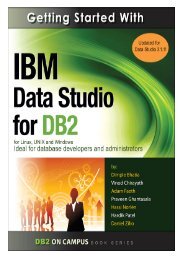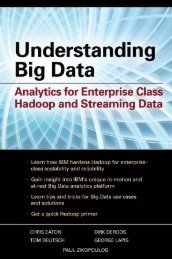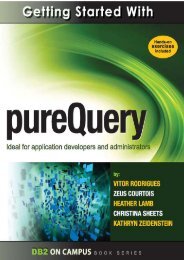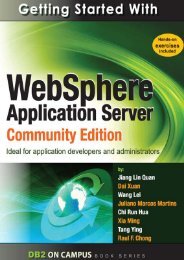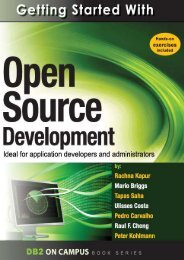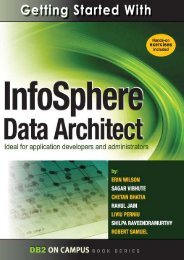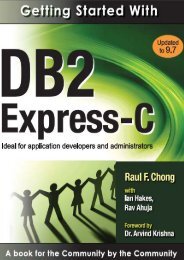Managing Computers in Large Organizations
Create successful ePaper yourself
Turn your PDF publications into a flip-book with our unique Google optimized e-Paper software.
<strong>Manag<strong>in</strong>g</strong> Microcomputers <strong>in</strong> <strong>Large</strong> <strong>Organizations</strong><br />
http://www.nap.edu/catalog/167.html<br />
About this PDF file: This new digital representation of the orig<strong>in</strong>al work has been recomposed from XML files created from the orig<strong>in</strong>al paper book, not from the<br />
orig<strong>in</strong>al typesett<strong>in</strong>g files. Page breaks are true to the orig<strong>in</strong>al; l<strong>in</strong>e lengths, word breaks, head<strong>in</strong>g styles, and other typesett<strong>in</strong>g-specific formatt<strong>in</strong>g, however, cannot be<br />
reta<strong>in</strong>ed, and some typographic errors may have been accidentally <strong>in</strong>serted. Please use the pr<strong>in</strong>t version of this publication as the authoritative version for attribution.<br />
PERSONAL COMPUTING, NOT PERSONAL COMPUTERS 134<br />
branch offices, but also to our customers. With a million customers, we are<br />
look<strong>in</strong>g for a reasonable response of 5,000 clients by the end of 1984.<br />
This system cost 40 million dollars. For us, the cost-benefits are really very<br />
simple. E.F. Hutton is a firm on the lead<strong>in</strong>g edge. As such, we cannot afford not<br />
to have such a system; we cannot afford to be second. Our alternative is not to<br />
be <strong>in</strong> bus<strong>in</strong>ess. Therefore, it is not a question of if, it is a question of who. We<br />
chose Data General because its hardware is significantly more powerful than<br />
the other computers we <strong>in</strong>vestigated. We received an operat<strong>in</strong>g system with addons<br />
and improvements written <strong>in</strong> to keep us competitive.<br />
We estimate that we can justify the cost of the system over a period of<br />
three to five years, and we anticipate its life cycle will be more than seven<br />
years. This is unusual because we generally blow our computers before their<br />
leases expire. In fact, I have never kept a computer until term. The company<br />
simply cannot afford to keep computers that are no longer efficient and<br />
economical.<br />
The cost, as far as I'm concerned, is dependent upon the mission. And<br />
realiz<strong>in</strong>g the mission of an organization raises the issue of management control.<br />
Yet, strangely enough, <strong>in</strong> all the talk about personal computers, we don't hear<br />
much about managers' ability to control the work. To me, on-l<strong>in</strong>e personal<br />
comput<strong>in</strong>g means giv<strong>in</strong>g away or abdicat<strong>in</strong>g a great amount of responsibility.<br />
And, as a bus<strong>in</strong>essman, I must wonder how I can control what I have given away.<br />
For this reason I view the personal computer as a dangerous weapon and I<br />
treat it as such. I th<strong>in</strong>k the first and most important question to ask when<br />
consider<strong>in</strong>g a personal comput<strong>in</strong>g system is, can I control this? If the answer is<br />
yes, and I am satisfied with the level of control I can exercise over the system,<br />
then I would choose it. If not, I would look for someth<strong>in</strong>g else. There is a vast<br />
array of options from which to choose. My advice is to take the best and leave<br />
the rest.<br />
Copyright © National Academy of Sciences. All rights reserved.




